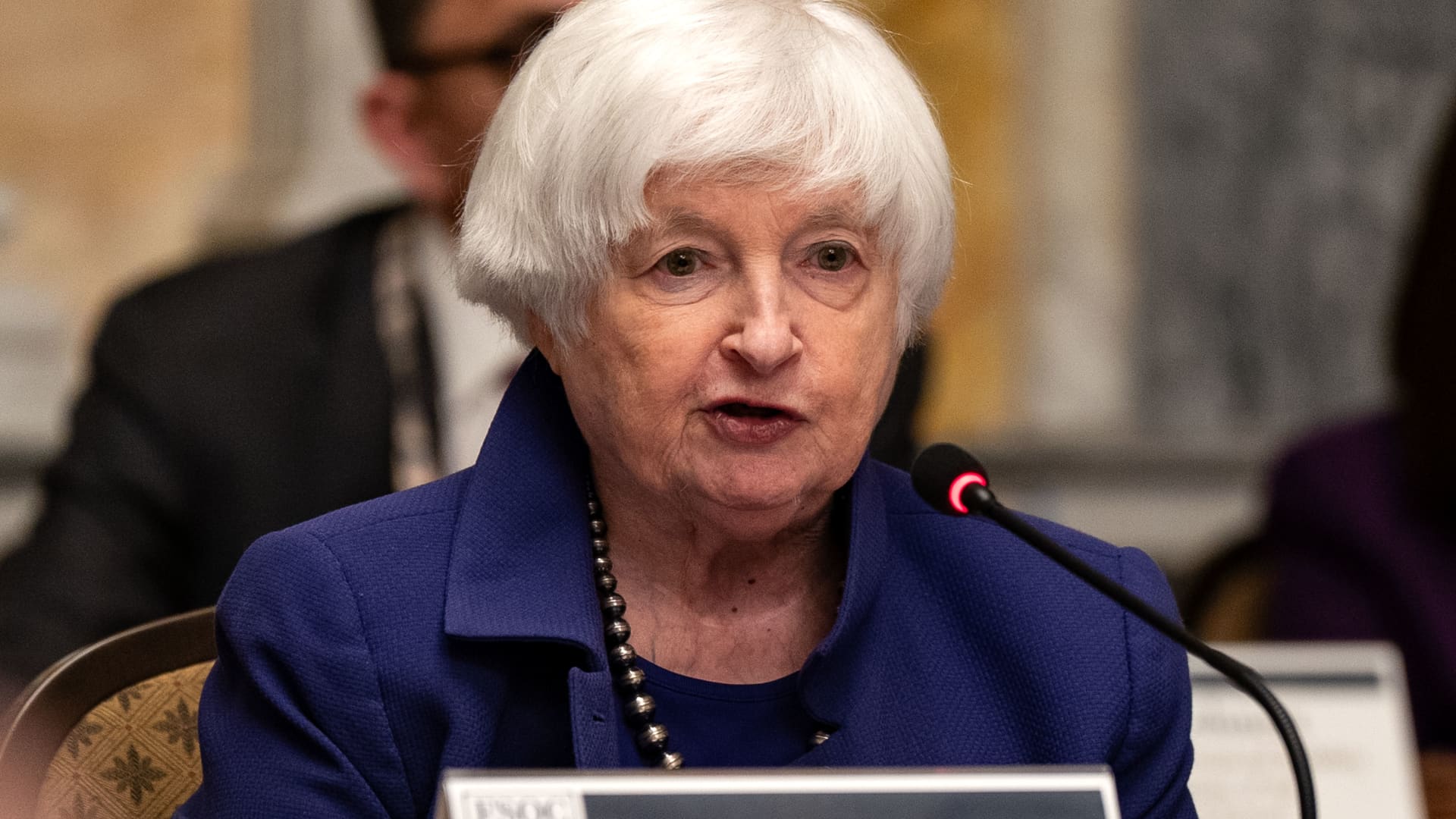It’s peak allergy season in several states on the East Coast, including New York, and you, or your loved ones, may be sneezing, coughing and feeling more miserable than usual this year.
More severe symptoms of seasonal allergies this spring are likely due to a warmer winter and an earlier start of allergy season, says Dr. Purvi Parikh, an allergist and immunologist with the Allergy & Asthma Network.
And the cause of this longer, more intense allergy season? Climate change.
“There’s higher amounts of pollen due to rising greenhouse gasses and more CO2 in the air, which plants thrive off of,” Parikh tells CNBC Make It.
Allergens like pollen, dust and mold can cause swelling in your nasal passages, Shelby Harris, a licensed clinical psychologist and director of sleep health at Sleepopolis, told CNBC Make It in April of 2023.
“Your body mistakes allergens as a threat to the body, so then you have histamine that is released and that essentially can make you have the nasal swelling, the congestion and the scratchy throat,” Harris said.
Here are some effective ways to alleviate your allergy symptoms and still enjoy the spring.
1. Optimize your home to reduce pollen spread
Peak pollen times are in the early morning, so it’s best to keep your windows closed during those hours. Having your windows shut can prevent allergens from entering and circulating in your living space.
“When coming home, change clothes, take off shoes and shower to avoid bringing pollen into [the] house with you,” Parikh says.
Harris also provided seven tips for keeping your home as pollen-free as possible:
- Avoid using ceiling fans in your bedroom to reduce dust circulation
- Vacuum often
- Change your sheets once a week
- Use an air purifier
- Keep your hamper with your clothes you’ve worn outside out of your bedroom
- Use hypoallergenic bedding
- Try not to dry clothes outdoors if you can
2. Use these recommended medications
If you’re experiencing allergy symptoms, Parikh suggests grabbing medications from your local pharmacy, noting that even generic brands can work if well-known brands are sold out.
Here are a few of the allergy medications that she recommends:
- Claritin
- Zyrtec
- Xyzal
- Allegra
- Flonase
- Astepro
- Alaway
- Pataday
“Any cough, wheezing, chest pain [or] shortness of breath should not be treated with over-the-counter medications and [you] should see a physician,” Parikh says.
“This could be asthma which is deadly, and allergies are the most common cause.”
3. Try local honey
There are only a small number of studies that have tested the effectiveness of local honey on alleviating allergy symptoms, and lack of funding may be the reason, Dr. Timothy Wong, board-certified family medicine doctor and medical expert for JustAnswer, told Make It last April.
“Unfortunately when you’re not using medications that have billions of dollars of funding for research and development, you don’t get as many clinical trials,” Wong said.
A small study with 40 participants in 2013 found that eating honey each day, in combination with allergy medication as needed, was associated with less allergy symptoms after eight weeks, compared to taking just allergy medication on its own.
The logic behind using local honey specifically for allergy symptoms is that “if you ingest the pollens that bring you discomfort, you build up an immunity against them,” Andew Cote, head beekeeper at Andrew’s Honey, told CNBC Make It.
“One spoon a day every morning is the recommended dosage,” Cote added.
It’s better to start eating local honey a few weeks before you began experiencing allergy symptoms the previous year, Wong said.
Children under the age of one should not be given honey, the American Academy of Pediatrics strongly warns. And people who are allergic to bees and wasps should also avoid trying local honey for their allergies, Wong said, because “there are some cases where people who have bee allergies can also get allergies from honey.”
Want to be a successful, confident communicator? Take CNBC’s new online course Become an Effective Communicator: Master Public Speaking. We’ll teach you how to speak clearly and confidently, calm your nerves, what to say and not say, and body language techniques to make a great first impression. Preregister today and use code EARLYBIRD for an introductory discount of 30% off through July 10, 2024.
Plus, sign up for CNBC Make It’s newsletter to get tips and tricks for success at work, with money and in life.






